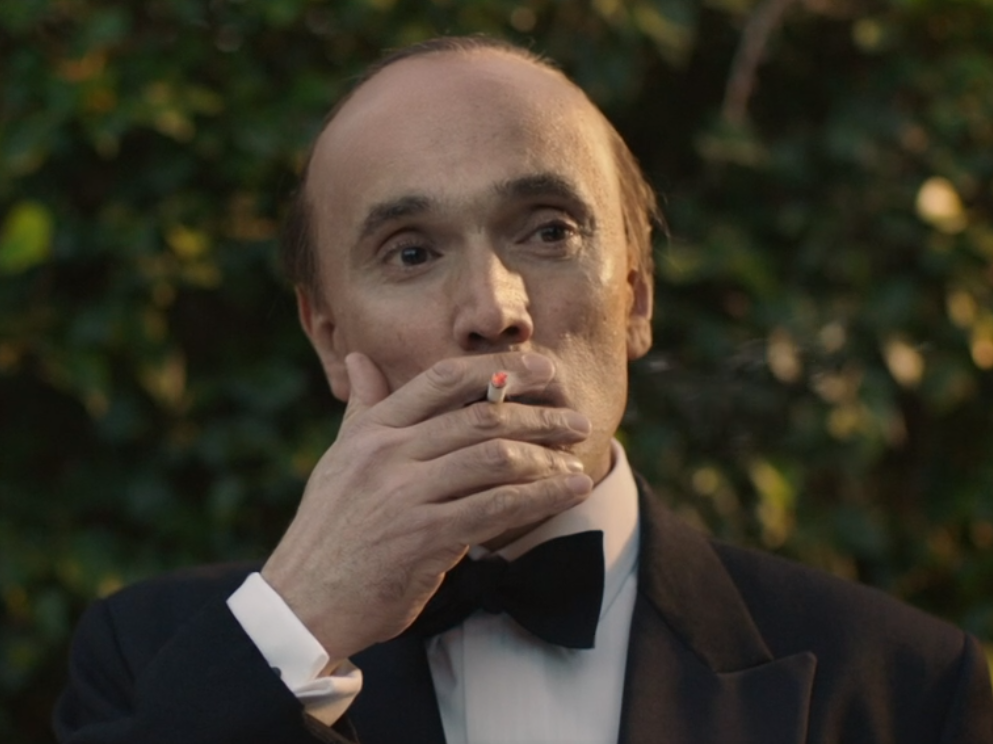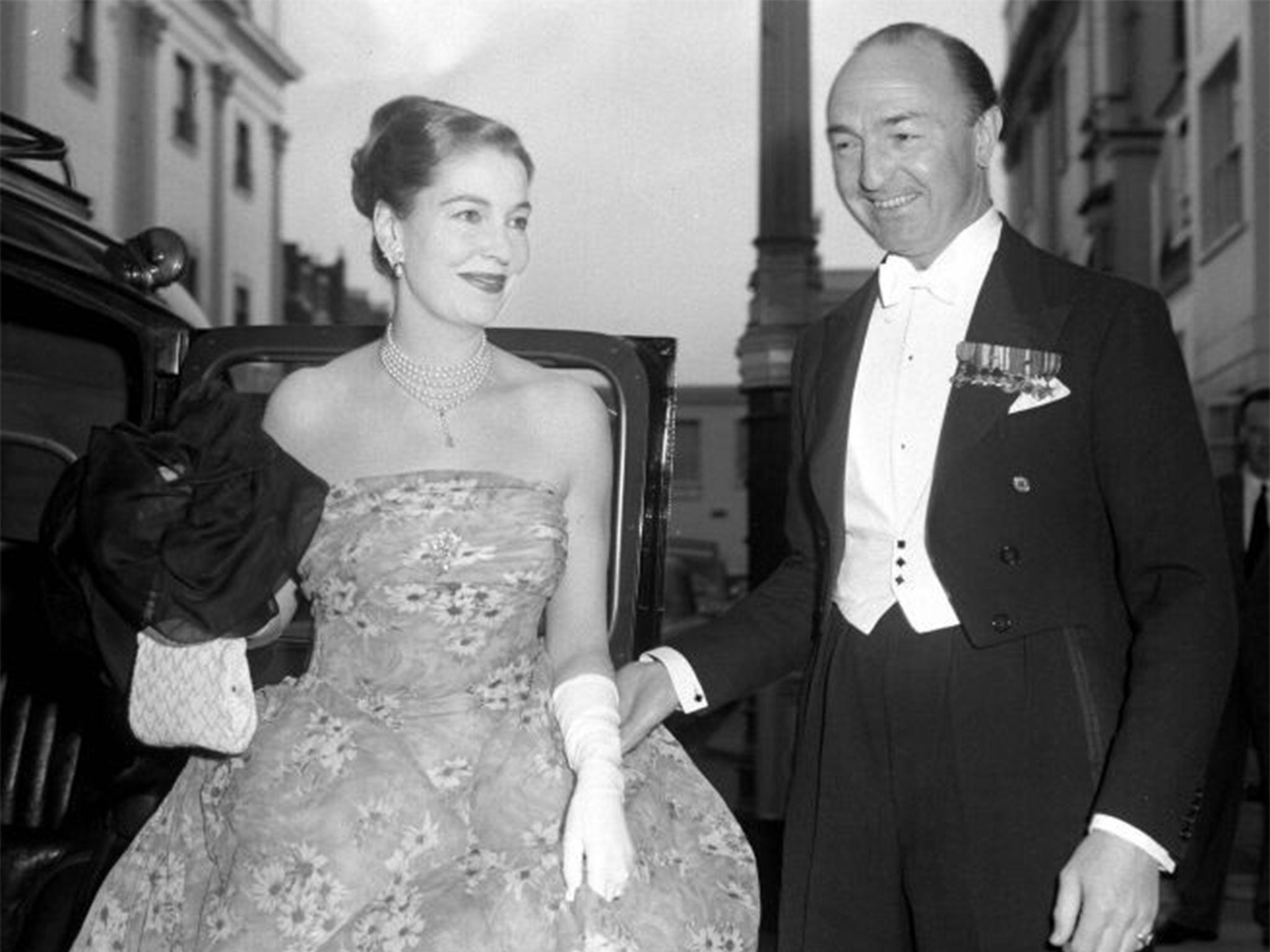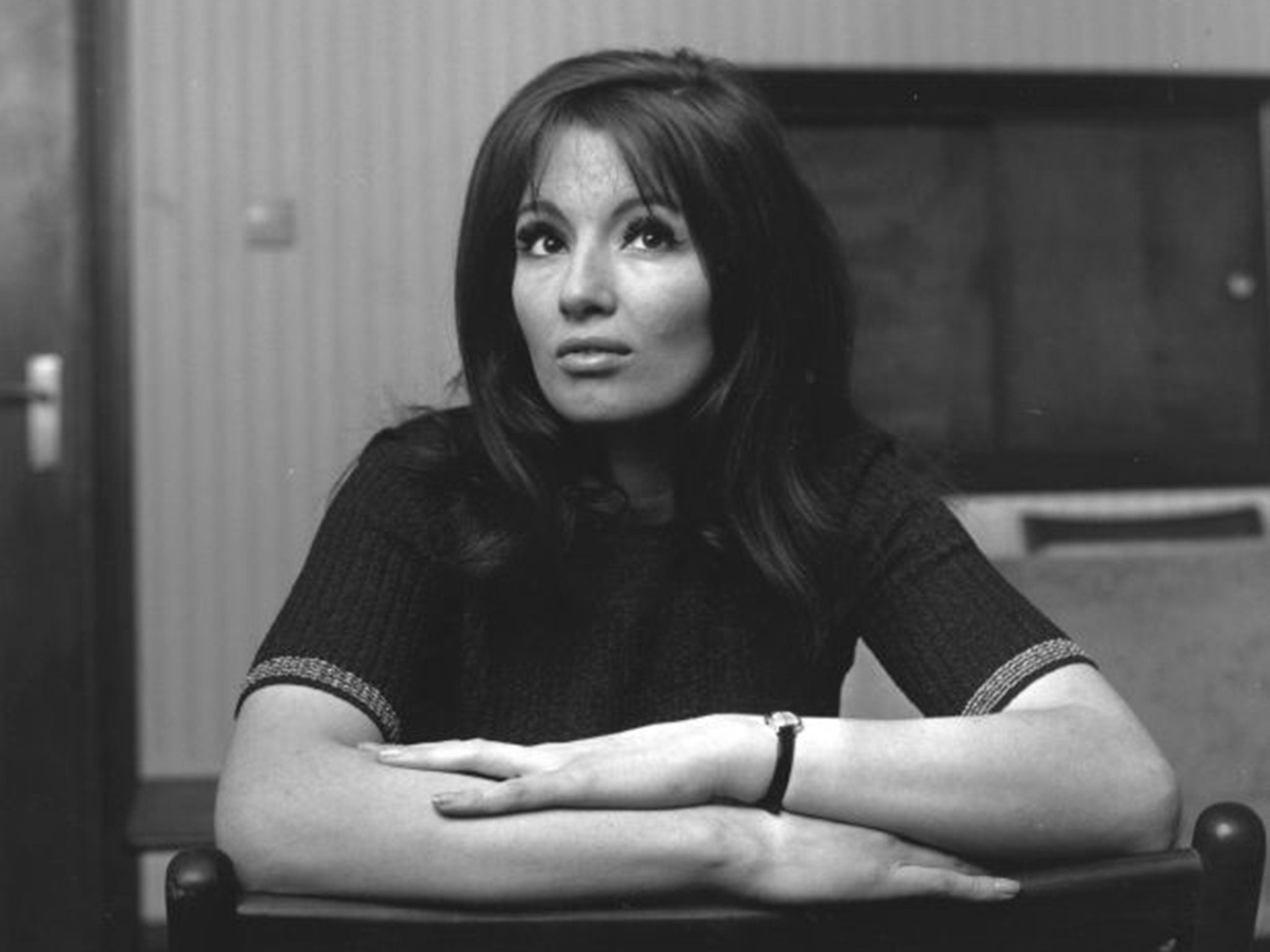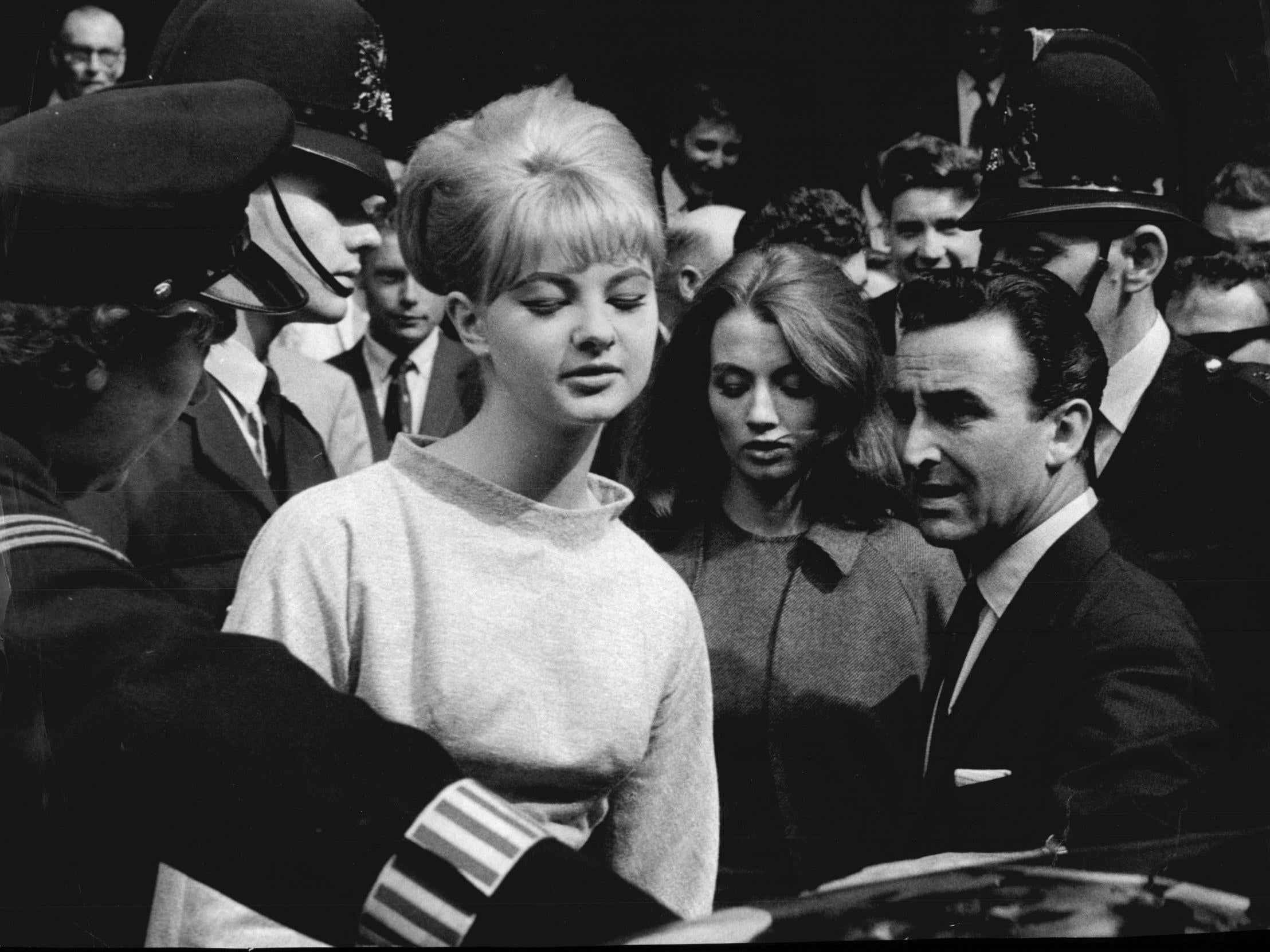Who was Christine Keeler? The true story behind BBC drama about Profumo affair
Who was the woman at the heart of the Cold War scandal?
Your support helps us to tell the story
From reproductive rights to climate change to Big Tech, The Independent is on the ground when the story is developing. Whether it's investigating the financials of Elon Musk's pro-Trump PAC or producing our latest documentary, 'The A Word', which shines a light on the American women fighting for reproductive rights, we know how important it is to parse out the facts from the messaging.
At such a critical moment in US history, we need reporters on the ground. Your donation allows us to keep sending journalists to speak to both sides of the story.
The Independent is trusted by Americans across the entire political spectrum. And unlike many other quality news outlets, we choose not to lock Americans out of our reporting and analysis with paywalls. We believe quality journalism should be available to everyone, paid for by those who can afford it.
Your support makes all the difference.The “Profumo affair” has been revisited in popular culture numerous times over the years, with adaptations including a 1989 film, Scandal, starring Ian McKellen and a 2013 Andrew Lloyd-Webber musical.
Now, the major scandal that dominated headlines in the Sixties has been turned into an original BBC One drama, starring The Crown’s Ben Miles as John Profumo and Sophie Cookson (best known for playing Roxanne “Roxy” Morton in the Kingsman films) as Christine Keeler. It is the first version of the story told from Keeler’s point of view, with previous ones having focused solely on the men involved.
The “Profumo affair” engulfed Harold Macmillan’s government in the early 1960s and has been credited with contributing to the Conservatives’ failure to win the 1964 general election.
It initially centred on the sexual relationship between the Secretary of State for War, Profumo, and Keeler, a then-little known model, but it soon spiralled into a major scandal about Cold War espionage and government security.
The scandal forced Profumo out of office and out of parliament, precipitated Macmillan’s resignation, and led to the death of an osteopath, Stephen Ward, who had introduced Profumo to Keeler. The affair had a colossal impact on the rest of Keeler’s life, and the effects of the scandal are still felt in Westminster today. Here’s everything you need to know about the Profumo affair.
Who was Christine Keeler?
Christine Keeler was the woman at the centre of the scandal. At the time of the affair she was a 19-year-old model and showgirl.
Originally from Uxbridge, Middlesex, she was brought up by her mother and her mother’s partner who lived in two disused train carriages. When she was nine years old her school health inspector sent her to a holiday home because she was suffering from malnutrition. She was sexually abused as a teenager by her mother’s partner and his friends.

She found work as a model at a dress shop in Soho at the age of 15, and two years later gave birth to a son after a brief relationship with a US Air Force Sergeant. The child, born at home, was premature, and died six days later.
Later that year through an acquaintance Keeler got work at a cabaret club in Soho where she worked as a topless showgirl.
She was introduced to Profumo by osteopath and artist Stephen Ward, who had first met her himself in the club.

After the Profumo affair Keeler was briefly married twice, and had two children. She published several accounts of the affair. In 2001 she claimed she had been pregnant with Profumo’s child and pressured into having an abortion, and after Profumo’s death in 2012, she released another revised edition with the strapline: “Now Profumo is dead I can finally reveal the truth”.
What was the Profumo affair?
Ward’s introduction between Profumo and Keeler took place at Cliveden, the house of Lord Astor, in 1961.
The pair then embarked on an affair – Profumo was married to the actress Valerie Hobson.
Subsequent meetings between Keeler and the MP took place at Ward’s home in Wimpole Mews in Marylebone.

The affair came to light after one of Keeler’s other lovers, Johnny Edgecombe, shot at the door lock of Ward’s central London house in which Keeler was said to be hiding with Jamaican jazz singer Aloysius “Lucky” Gordon, with whom she’d also had an affair. Police investigations into the incident soon led to the uncovering of Keeler’s affair with Profumo.
In March 1963, Profumo denied any impropriety in a public statement to the House of Commons. But public interest increased when it was revealed that Keeler had also been linked to Soviet naval attaché Captain Yevgeny Ivanov, with whom she had also been having a sexual relationship.
Ward had also introduced them to one another. Ivanov was known to MI5 and with the possibility of a Profumo-Keeler-Ivanov love triangle emerging, questions over the possibility of a security risk arose.
Weeks after his initial denial, amid growing media clamour and the publication of stories that took a broad brush to MPs, civil servants and military personnel’s morals, Profumo confirmed he had lied in the Commons and then resigned from the government and from Parliament.

Ward was subsequently arrested and charged with immorality offences, while the press branded him as a likely Soviet agent due to his closeness with Ivanov.
He was charged with living off immoral earnings, however, before the trial’s verdict was announced, he took an overdose of sleeping pills and died three days later.
Who was John Profumo?
Profumo was the son of Albert 4th Baron Profumo, an Italian diplomat and barrister. He studied law at the University of Oxford and was said to be a member of the notorious Bullingdon Club.
Profumo served in the army and in 1940 was elected to the House of Commons as a Conservative MP for Kettering in Northamptonshire. He rose steadily in the party was was appointed Parliamentary Secretary to the Ministry of Civil Aviation and Joint Parliamentary Secretary to the Ministry of Transport and Civil Aviation prior to his role as Secretary of State for War

Profumo maintained complete public silence over the affair, despite resurged interest thanks to Scandal and the publication of Keeler’s memoir. He died in 2006 aged 91 after suffering a stroke.
Who was Stephen Ward?
Ward was a successful osteopath who treated several well-known figures, including Lord Astor, the American ambassador, W. Averell Harriman and Winston Churchill’s son-in-law, Duncan Sandys.

Alongside his osteopathy business, Ward was a successful artist and in 1960 was commissioned to make a series of portraits of members of the Royal Family.
Ward was also the photographer who took a famous picture of Keeler, who posed nude straddling a chair, and which was subsequently bought by the National Portrait Gallery.
He married actor Patricia Mary Baines in 1949, but the marriage lasted just three years. Ward also served in the British Army from 1941 to 1945.
Who was Mandy Rice-Davies?
Mandy Rice-Davies was a showgirl and close friend of Keeler who became embroiled in the Profumo affair due to an alleged affair with Lord Astor at Cliveden.
Rice-Davies, who was 19 at the time, made a famous appearance at Ward’s trial for living off immoral earnings. It was put to her that Astor denied her allegation.

“Well, he would, wouldn’t he?” she replied, a remark that dominated the headlines the next day and earned Rice-Davies a spot in the Oxford Dictionary of Quotations.
Rice-Davies’ claims were never proven given that the court case ended with Ward’s death. Nonetheless, she acquired notoriety from the court appearance and is said to have profited from the publicity, releasing a memoir about her rise to fame in 1964 titled The Mandy Report.
Rice-Davies was also one of Lloyd Webber’s closest collaborators for his musical about the Profumo affair, titled Stephen Ward. She died in 2014 aged 70.
Who was Johnny Edgecombe?
Johnny Edgecombe was an Antiguan shebeen owner who Keeler had an affair with following her relationship with Gordon, who Keeler accused of sexual assault. The accusation led to Gordon being sentenced to three years in prison, though Keeler withdrew her accusation and he was released from prison the following month after an appeal. In December 1963, Keeler admitted perjury and was jailed for six months.
After Keeler had left Gordon in 1962, Edgecombe confronted him at the Flamingo Club in central London, slashing his face with a knife.

Months later, Edgecombe stalked Keeler to Ward’s flat in Wimpole Mews and fired gunshots at the door. Police were called and press began looking into Keeler’s various affairs, soon uncovering her relationship with Profumo.
What was the impact of the affair?
The scandal ran through the summer of 1963, and in October, the night before the Conservative’s annual conference, Macmillan resigned as prime minister. The following year Labour’s Harold Wilson led the party to victory at the general election, with many commentators pointing out that the scandal had shaken the Conservative party and left it a considerably changed entity.
The scandal is also credited with catalysing a change in the relationship between the press and politicians, where a state of mistrust in figures of authority increasingly became the accepted norm.
The first episode of The Trial of Christine Keeler aired on BBC One on Sunday. The series comprises six episodes that will continue to air on Sundays at 9pm.

Join our commenting forum
Join thought-provoking conversations, follow other Independent readers and see their replies
Comments